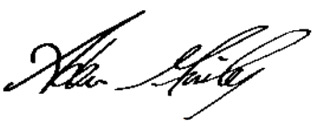
This weekend, we will gather with loved ones to begin celebrating Passover, our festival of freedom.
As I was reflecting on the holiday, I was reminded of an experience I had when I began working for our community in the 1990s. One of my first assignments was to develop Birthright Israel trips for the Jews of Cuba. I'll never forget travelling to Cuba to meet with the community.
Despite meagre supplies and economic insecurity under the Communist regime, local Jewish leaders insisted on hosting us and sharing what little they had. As it turned out, the food they served us during our February trip had arrived with the kosher supplies sent from our Toronto Jewish community, as part of UJA's Global Seder in the previous year.
It opened my eyes to just how much the Jews of Cuba depended on our shipment for sustenance year-round, providing a lifeline over decades of U.S. trade restrictions. It also made me appreciate the dignity that comes with hospitality—and how being able to do something as simple as serving food can have such an empowering effect for a vulnerable community.
It speaks to an insight by Rabbi Joseph B. Soloveitchik, the brilliant 20th century sage. In his writings* about Passover, he touches on two words that contain a wealth of wisdom about the meaning of the holiday for our lives today.
The first is found in the Torah, in which we read that the Almighty told Moses: “I have surely seen the affliction of My people (ammi) who are in Egypt…”
Rabbi Soloveitchik notes that “ammi denotes togetherness—am is derived from im, ‘being with.’ …Am is indicative of a readiness to share, a sense of compassion. The Jews were taken out of Egypt and were freed not because of their spiritual grandeur, but simply because they were charitable to one another; there was a feeling of solidarity among them.”
“The sense of mutual responsibility,” said Rabbi Soloveitchik, “and the devotion of the individual to the people as such, has always been the most beautiful characteristic trait of the Jewish people. They have never lost it…”
The second word is to be found in a reflection from Rabbi Soloveitchik on how the exodus from Egypt forever shapes Jewish identity: “The experience of Egyptian servitude underlies the very morality of the Jew. If asked what characterizes Jewish morality, I would answer with a single Yiddish word: rahmanus. The English translations of mercy, compassion, sympathy, or empathy do not capture its full meaning. …The word rahamim in Hebrew is derived from rehem, the womb; it means the love of a mother for her child.”
“The fact that in Egypt the Jews were…treated there like objects, not people, engendered in the Jewish people sensitivity and tenderness toward their fellow man. …This would never have happened if not for our sojourn in Egypt.”
Solidarity and compassion. Unity and empathy. These ideas aren’t simply teachings of Judaism but fundamental traits of being Jewish.
Over the past 18 months, we’ve faced an onslaught of those who have tried to define Jews in the most malicious terms. While we must fight these lies, standing against hate can never replace standing for what we believe in—and what we must always strive to be: an am defined by rahmanus.
As we set our seder tables and prepare to declare “all who are hungry, let them come and eat,” we can help bring these words to life for vulnerable families in our city, in Cuba, and around the world. If you are looking for a meaningful tzedakah opportunity before the holiday, I encourage you to consider donating here.
This Passover, let’s also take the opportunity to elevate our seder conversations about the important issues confronting our community and our country. I encourage you to download and print Four More Questions, a seder discussion guide focused on the federal election, developed by our advocacy agency, the Centre for Israel and Jewish Affairs.
As we celebrate our freedom, we remember the suffering of those who are not yet free—and the anguish of families whose seder tables will be painfully marked by an empty chair. We pray that the coming days will bring liberation for our hostages, comfort for the injured and those mourning, and security for the people of Israel and all who desire peace.
Chag Pesach Sameach,

Adam Minsky
President & CEO
UJA Federation of Greater Toronto
